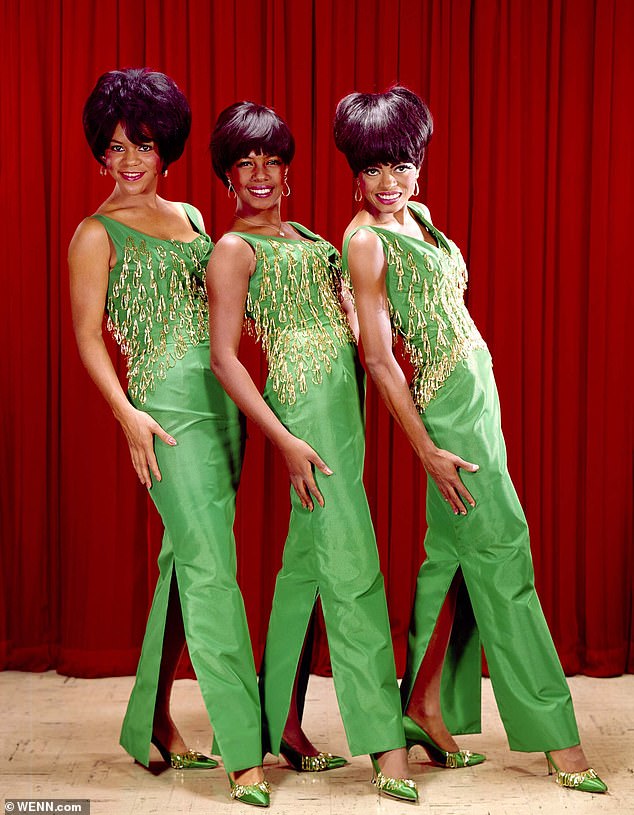REFLECTIONS of Mary Wilson
REFLECTIONS of Mary Wilson
by Norman Warwick
The three women, usually dressed in long diaphanous gowns, were for many years synonymous with what was the distinctly recognisable sound of Motown in the nineteen sixties. Sadly, though, her publicist announced last week that Mary Wilson, one of the co-founders of The Supremes, had died Monday at the age of seventy six.
No cause of death was given but Mary was said to have ´passed away suddenly´ at her Henderson, Nevada home, according to a statement issued by her long-time friend and publicist Jay Schwartz. The statement went on to describe Wilson as a ´trendsetter who broke down social, racial and gender barriers.´

Mary was born in Greenville, Mississippi but not long after her birth, her parents headed to St. Louis and then Chicago for better opportunities. However, her parents separated soon after, and as a three-year-old, Wilson was sent to Detroit to live with her aunt and uncle. Speaking with The Wall Street Journal last May, she revealed that she had believed they were her biological parents for much of her childhood, until her mother arrived in Detroit when Mary was 10.
It was whilst living in the Brewster-Douglass Housing Projects that Mary met fellow singers Diana Ross, Florence Ballard and Betty McGlown. By the time she was 15, they had become a group called the Primettes.
Legend has it that Ross coaxed her former neighbour, Smokey Robinson, to introduce them to hit-maker Berry Gordy and his Motown label, but Gordy thought they were too young to sign. The teenagers refused to let that stop them and so they hung around his Hitsville USA studio until he let them appear on other people’s records, doing handclaps and backing vocals.

Mary Wilson, centre
Barbara Martin had replaced McGlown before they finally signed with Gordy’s Motown label as The Supremes in 1961, but Martin then departed in 1962. The group carried on as a trio, releasing its debut album, Meet the Supremes, in December of that year.
In 1967, Gordy, very much a hands-on label boss, replaced Ballard with Cindy Birdsong, and renamed the group Diana Ross & the Supremes. Three years later, Ross left for a solo career, and the group once again became The Supremes, with singer Jean Terrell added to the line-up thus leaving Mary Wilson as the lone original member.

The Motown sound became, for most of my generation in the UK and for many more thousands of music fans around the world, the defining sound of the sixties´ pop, R&B, and soul music. The distinctive musical style—all tambourines, driving bass lines, and gospel-influenced vocal harmonies—became synonymous with the Detroit studio where the songs were recorded and with the stars who sang them.
The music was infectious and, with it, the group achieved unprecedented success, producing 12 No. 1 hits including Where Did Our Love Go, Baby Love and Stop! In the Name of Love.

After the hits had dried up and the group had disbanded, in 1977, Mary released two solo albums, 1979’s Mary Wilson and 1992’s Walk the Line. She also became a New York Times best-selling author in 1986 with the release of her first autobiography, Dreamgirl: My Life as a Supreme, and wrote three more books on her time in The Supremes. Wilson was inducted into the Rock and Roll Hall of Fame in 1988 as a member of The Supremes, alongside Ross and Ballard.
In 2006, Wilson explained to NPR’s News & Notes that she had gone back to school in 2001 to gain an associate’s degree after her long and stellar career in the music industry.
´I recall being 13 or 16 years old,´ she said, ´and signing our first contract, recording contract. Well, I didn’t know what the heck was on that contract. That’s why I went back to college, because I realized that there was so much that we, The Supremes, had given away because we didn’t know how to read those contracts. I mean, we could read. We graduated from high school and all that. But the understanding was not there.”
Ín the first decade of this century Wilson was an instrumental advocate for the Truth In Music Advertising Act, which is now law in at least 35 of The United States Of America.. The legislation ensures that a name of a famed legacy musical group — like The Supremes — cannot be used by a group of performers unless it includes at least one member of the original act.
Wilson was, rightly, very proud of her activism, as she told News & Notes;
´One of the biggest jokes has been — and unfortunately, it’s at the cost of some famous people — that on any given night you can probably see a Drifter, a Coaster, a Platter group in different cities, states, countries. And they have no affiliation with the original recording members.´
We wanted to make the public aware that they’re being defrauded, and also that it’s taken away the livelihood of some of the groups who are, you know, a lot older,” she continued. Her goal, she explained, was to prevent artists “in their twilight years to have to see their legacies, the history that they’ve made, being destroyed.´
Berry Gordy said in a statement to NPR, ´I was always proud of Mary. She was quite a star in her own right, and over the years continued to work hard to boost the legacy of the Supremes. Mary Wilson was extremely special to me. She was a trail-blazer, a diva and will be deeply missed.´
Given all that she had achieved I was disappointed that one UK newspaper printed an unnecessary story, in the same issue as it announced her death, telling of her sometimes fraught relationship with Diana Ross and her too-amicable relationship with Tom Jones. Because none of this was revelatory it felt like the gossip was being recycled at the most hurtful time.
Whatever the newspaper was hoping to achieve was perhaps undermined by a global tweet from Diana Ross, which read:
´I just woke up to this news, earlier this morning, and I offer my condolences to (Mary) Wilson’s family. I am reminded that each day is a gift, and I have so many wonderful memories of our time together.´




Leave a Reply
Want to join the discussion?Feel free to contribute!